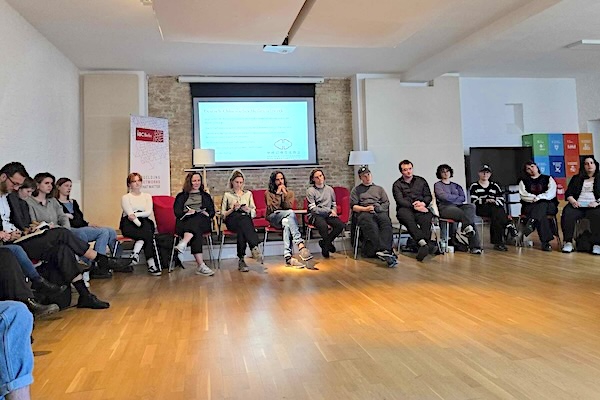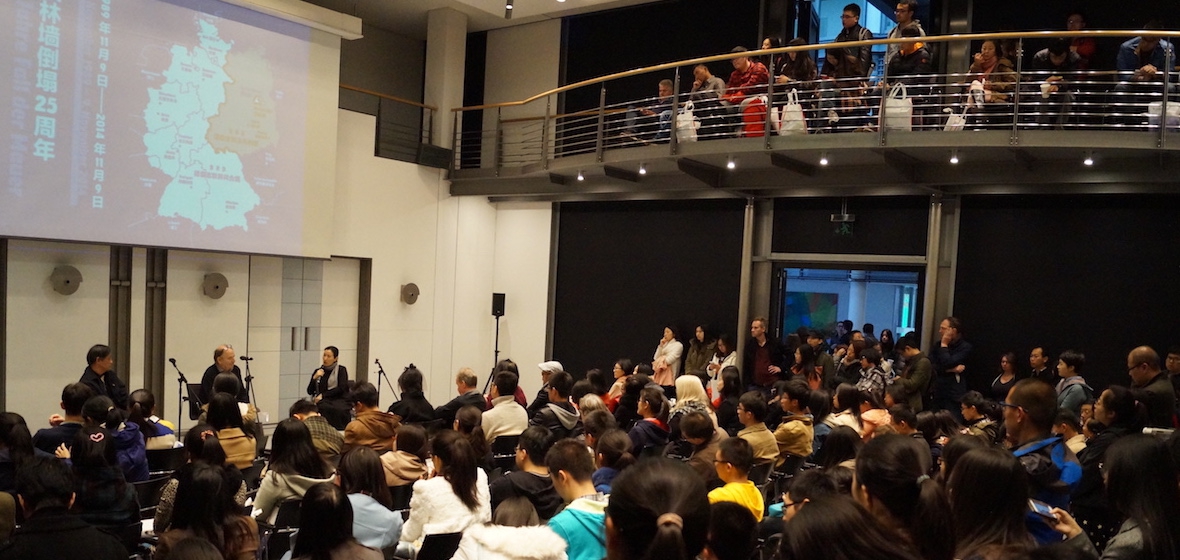回顾:
How to get started with China journalism?

China is and remains one of the most important reporting areas of foreign journalism. However, surveillance and restrictions on press freedom continue to make the work of foreign correspondents in China more and more difficult. At the same time, social contacts have recently declined, especially in the wake of the pandemic.
In order to give new perspectives to a generation of future China journalists, on 16 May 2025 the German-Chinese Media Network, in cooperation with China.Table, hosted a workshop for German-speaking journalists and other young professionals interested in China, attended by a diverse group of more than 30 participants.
One of the topics discussed was how to add more perspectives related to Asian migration histories into the German discourse on China. Those already active in journalism brought in concrete questions on China-related researches, such as data protection or handling of sources inside China. Five experienced journalists with a focus on China and Taiwan shared their insights. The workshop was moderated by Leonardo Pape, freelance journalist for China.Table and other media and Emily Kossak, student assistant at China.Table.
Felix Lee, chairman of the German-Chinese Media Network, editor at SZ Dossier Geoökonomie, and former correspondent for taz and other German media in China, recounted that he only became a China journalist a few years into his career. In his experience, despite its importance in political and economic terms, China is still treated as a niche topic in many German newsrooms. Many leaderships of news organisations are strongly oriented towards domestic issues. While this in some instances is lamentable, it shows how important it is to have experience in newsrooms inside Germany, and to get a feeling for the national news industry even while specialising on China-related issues.
Amelie Richter, editor-in-chief at China.Table, shared her experience working on China-EU relations, based in Paris. In her work, she values the opportunity to compare different national discourses on China within Europe. She remarked the importance of data literacy in her field, as trade and other economic data shape a big part of EU-China news coverage, such as on investment policy. She also shared advice on organisational issues encountered by those who report with their permanent residence outside of Germany.
Steffen Wurzel, editor at Deutschlandfunk and former ARD radio correspondent in Shanghai, shared his experience working on China from afar since returning to Germany. To him, maintaining personal contacts and traveling to China regularly is vital to retain a feeling for social dynamics in the country. He encourages upcoming China journalists to gather experience also in other journalistic fields and to get newsroom experience in Germany. In his view, speaking fluent Chinese is a useful skill, but not necessarily a prerequisite to doing good journalism on China.
Lin Yuli, former Germany correspondent for the Taiwanese Central News Agency, now a freelance journalist based in Berlin, noted that Taiwan issues have gotten greater attention in the German media discourse lately. He sometimes finds foreign media coverage on Taiwan unrealistically positive, as Taiwan is constantly pitted against China in political discourse. While he considers Taiwanese perspectives valuable on their terms, he finds it difficult for foreign reporters to live in Taiwan and report mostly on China. As contacts between the two sides of the Strait have diminished significantly, it is challenging to get a good feeling of Chinese society while living in Taiwan.
Xifan Yang, editor for Die Zeit, shared her previous experiences working inside China as Zeit correspondent. She remarked that while China offers a wide variety of fascinating stories, dealing with rejection was one of her greatest challenges, as the state apparatus discourages potential sources from exchanging with foreign journalists. On the future of German China reporting, she said that initiatives such as the workshop made her hopeful. She also noted a perception gap between the leaderships of Geman newsrooms who lately struggle to find new China correspondents, and the motivation to engage deeply with China that she felt among many workshop participants.
Text and photo: Leonardo Pape
